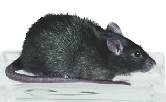
FRIDAY, April 2 (HealthDay News) — New details about how a mutation in a gene called LRRK2 may cause Parkinson’s disease have been uncovered by U.S. researchers.
In experiments using genetically engineered mice, the Mount Sinai School of Medicine team found that LRRK2 regulates dopamine transmission and controls motor performance. Dopamine is a neurotransmitter. The mutation eliminates the normal function of LRRK2, resulting in inherited (familial) Parkinson’s, the most common form of the disease.
The study was published in The Journal of Neuroscience.
The mice created and used by the Mount Sinai researchers feature a key element of Parkinson’s disease — age-dependent reduction of dopamine — which is believed to cause the motor function problems, such as tremors, rigidity, and involuntary movement experienced by people with Parkinson’s.
“While the mice are not at the stage where they experience the typical symptoms of Parkinson’s, like tremors or reduced movement, we are able to study the potential root cause of the disease in these mice,” Zhenyu Yue, an associate professor of neurology and neuroscience, said in a Mount Sinai news release.
“Importantly, as we have developed assays that allow us to measure the enzymatic activity of LRRK2 in the brain, the mouse models provide valuable tools in the preclinical development of drug compounds that target aberrant LRRK2 activity. This research may translate to non-familial Parkinson’s disease as well,” Yue added.
More information
We Move has more about Parkinson’s disease.

